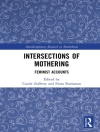Canadians can no longer expect as much from their governments. Rights formerly guaranteed by our “welfare state“ are disappearing. Social spending has been cut drastically in an attempt to combat recession, globalization and restructuring, and the deficit.
The decline of the welfare state poses special risks for women. The policies, benefits, and services of the welfare state are directly linked to women“s basic freedoms. The welfare state employs women to deliver services such as childcare, home-help, nursing, and social work. In turn, these services have meant that women can enter the paid labour force, provide for dependants, and leave abusive relationships. Access to political resources have helped women to form solidarities, alliances, and organizations. In Women and the Canadian Welfare State, scholars from environmental studies, law, social work, sociology, and economics explore the changing relationship between women and the welfare state. They examine the transformation of the welfare state and its implications for women; key issues in the welfare state debates such as social rights, family and dependency, and gender-neutral programs and inequality; women“s work and the state; and the role of women as agents of change.
Women and the Canadian Welfare State explains not only how women are affected by changes in policy and programming, but how they can take an active role in shaping these changes. It bridges an important gap for scholars and students who are interested in gender, public policy, and the welfare state.












